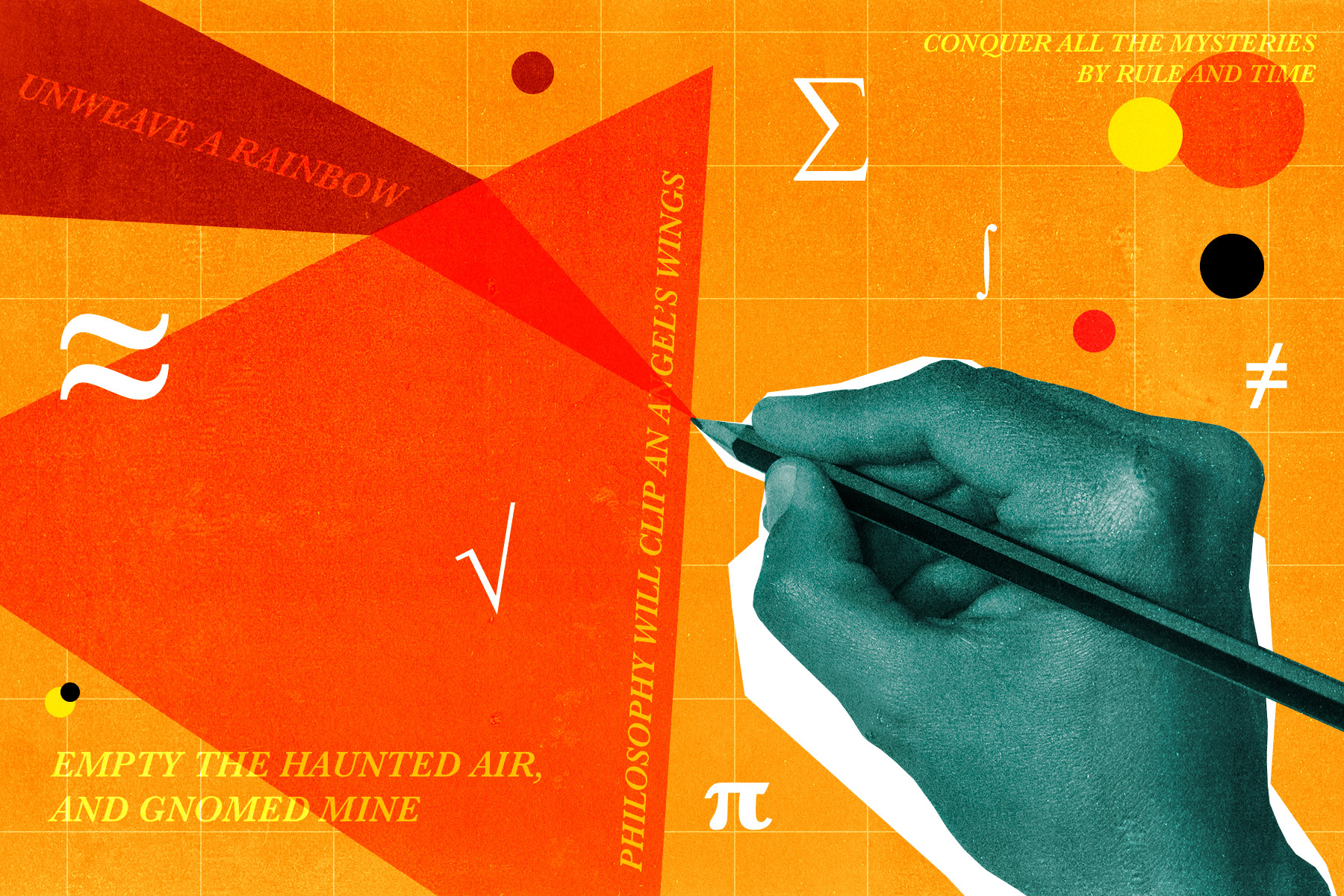
- Home |
- Search Results |
- Are maths and literature opposites, or can they complement one another?
Are maths and literature opposites, or can they complement one another?
In his book Shape: The Hidden Geometry of Absolutely Everything, author Jordan Ellenberg shows how maths can explain the world – and it has parallels with creative writing, too.
There is a kind of reflexive and defensive posture one sometimes encounters when talking about the importance of mathematical reasoning, especially in creative circles. For instance, if one were to talk such things with the poet John Keats, he might just come back at you with the gloomy lines:
Philosophy will clip an Angel's wings,
Conquer all mysteries by rule and line,
Empty the haunted air, and gnomed mine—
Unweave a rainbow….
That’s Newton’s prism Keats is name-checking at the end there with “Unweave a rainbow”. “Rule and line,” as he sees it, are inimical to the true spirit of poetic feeling the natural world is supposed to inspire.
Similarly, some people nowadays like to say they are ‘left-brained’ or ‘right-brained’: by the former meaning that they rely on formal, rigid thought; and by the latter, that they are oriented towards creativity and art and perhaps sometimes forget their appointments. As I understand it, there’s little neurological basis for the idea that people are going around atrophied on one side of their brain. But the concept retains its popularity, because of the Keatsian prejudice that mathematics and creativity are opposing forces.
I used to think so, too. After majoring in math in college, I went off to do a master’s degree in creative writing, aiming to be a novelist, thinking I was taking a hard perpendicular detour from my life course so far. (I did write that novel, and even publish it; its readers are, shall we say, a very exclusive literary niche.) I missed math every day, and quickly abandoned creative writing for Ph.D. study in number theory, which remains my research area even today.
But I no longer think I’ve been following two widely disparate paths. I now write books for the general public about math, books which draw on both my research life and what I learned as a would-be novelist about how to put syllables together into words, words together into sentences, and sentences together into stories. The experience of doing mathematics as a vocation has shown me that it offers the same kind of internal spiritual lightning that a perfect brushstroke or poetic line does.
Unlike Keats, William Wordsworth would likely agree with me. His take on Newton was romantic and admiring: “A mind forever / voyaging through strange seas of Thought, alone”, he once wrote. Wordsworth was great friends with the young Irish mathematician William Rowan Hamilton, and through him saw that moments of real creative progress were as likely to come from a mathematical insight as a poetical one. Hamilton, for his part, was a great admirer of Wordsworth’s verse, and a would-be poet himself.
'The scientific and poetic impulses, like the scientists and the poets, can and in fact should be allies'
Is it so surprising? The methodical process by which an essay, poem, or book is assembled out of tiny lexical pieces, carefully arranged in the right narrative order, is not so different from the way an intricate mathematical argument is built out of smaller logical steps. As Wordsworth wrote to Hamilton: “The logical faculty has infinitely more to do with poetry than the young and the inexperienced, whether writer or critic, ever dreams of. Indeed, as the materials upon which that faculty is exercised in poetry are so subtle, so plastic, so complex, the application of it requires an adroitness which can proceed from nothing but practice, a discernment which emotion is so far from bestowing that at first it is ever in the way of it.”
Many people are inclined to Keatsism, anxious that a mathematical view of life will suck the humanity out of existence and turn life into a spreadsheet. But it’s just the opposite: the math stories I learn about and tell in my books are about people, because mathematics is made of people – it is a species of human action designed to solve human problems, not a game for machines to play. Which is to say: we don’t need poetry to restore the humanity that analysis strips away; as the two Williams knew, the scientific and poetic impulses, like the scientists and the poets, can and in fact should be allies. Ideally, we all have a Hamilton and a Wordsworth within us, each nourishing the creativity of the other.
What did you think of this article? Email editor@penguinrandomhouse.co.uk and let us know.
Image: Ryan MacEachern / Penguin